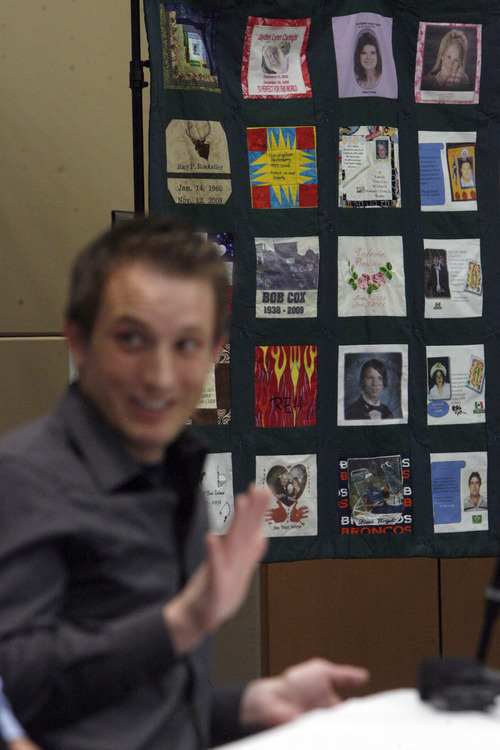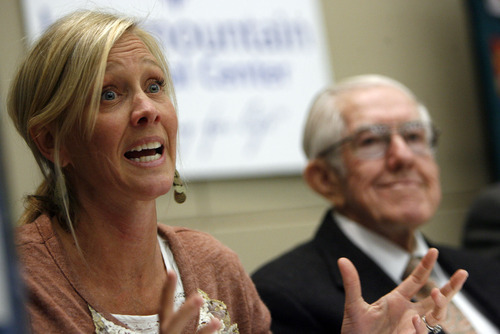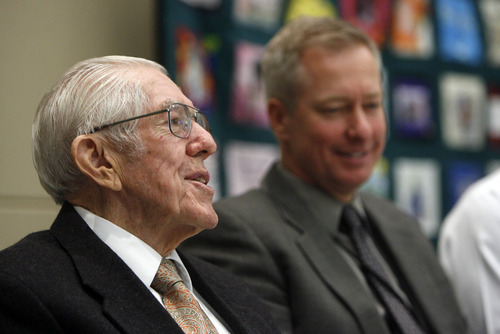This is an archived article that was published on sltrib.com in 2011, and information in the article may be outdated. It is provided only for personal research purposes and may not be reprinted.
At 54, Lyle Thacker was too old to get a liver transplant at the University of Pittsburgh, but with maybe six to eight months to live, he needed one.
A Jordan School District principal and LDS Church stake president, Thacker received a church blessing that assured him he would live a full life. "And from that point on," said Thacker, now 79, "all the barriers fell."
Though insurance wouldn't pay for the operation, LDS Hospital decided 25 years ago it would do its first two liver transplants for free, and didn't discriminate against Thacker due to his age. So he became the first liver transplant recipient in the Intermountain West on March 22, 1986, receiving his new liver from a Colorado Springs man who died at a young age.
Thacker was among more than 200 transplant recipients, family members, donor families, living donors from six states and staff members from the Liver Transplant Program who gathered at Intermountain Medical Center on Monday to celebrate the program's 25th anniversary.
When the program began, it was the 14th liver transplant center in the country, according to Intermountain. It has now performed nearly 750 liver transplants, including living-donor surgeries in which family members or other individuals give half their livers to the ailing person.
The program's survival rates exceed national averages, said Willem Van der Werf, Intermountain's transplant surgery division chief.
Thacker was slowly dying of sclerosing cholangitis, a progressive malady that blocks the liver's bile ducts. "I was quite yellow," he said. He was getting dressed to leave the LDS Temple in Provo when he got the call, an order to get to LDS Hospital immediately. His surgeon, Larry Stevens, was at the Salt Lake City LDS Temple when he got the same notification.
So even when the anesthesiologist prepping him for the 10-hour surgery told Thacker he might not make it, he wasn't scared. "I almost laughed," he said. "It didn't faze me whatsoever."
The anti-rejection medications eventually ruined his kidneys — his daughter donated one of hers for his subsequent transplant — and the underlying chronic liver disease remains. But Thacker figures he's good for another 25 years.
Gordon Harmston, Intermountain's transplant program interim director, says there are 110 people now on the waiting list for a liver. The hospital does 30 to 40 transplants a year, Harmston said.
With almost 20,000 people nationally in need of liver transplants, "there is a tremendous need for more organs," he said. —
Donors needed
To learn more about becoming an organ donor, visit https://www.yesutah.org/.







